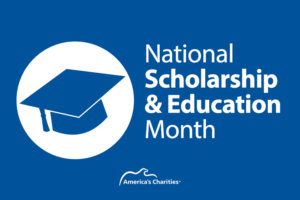Harry L. Williams, president & CEO of the Thurgood Marshall College Fund | June 18, 2019
African Americans are held back the most by student loan debt. Here’s a solution.
This article was originally posted in the Opinion section of The Washington Post here.
Hear Dr. Williams speak about TMCF’s model of corporate diversity solutions leveraging HBCU talent at the 3BL Forum at MGM National Harbor, Outside Washington, D.C. October 29-30th.
Our student loan debt crisis is preventing millions of young Americans from purchasing homes, starting families, saving for retirement and creating wealth. No group is held back more by student loan debt than African Americans, who come out of college with an average loan balance of more than $34,000, compared with an average balance of $29,600 for all students. How can young Americans, and especially young African Americans, hope to create and build wealth when they are saddled with crushing debt before they even enter the workforce?
One solution comes from an unlikely coalition of leaders and turns on how companies hire and retain young workers. Since the 1970s, employers have been able to offer tuition assistance programs, up to $5,250 per year, to reimburse employees for the cost of continuing education. Under current law, employees are not taxed on this benefit, though it is a form of income.
But under current law, if an employer provides an employee with student loan repayment assistance, the employee is taxed on the benefit. Companies large and small opt out of this opportunity because the taxable perk can cost an employee several thousand dollars a year in additional taxes. The arrangement is simply not mutually beneficial.
That may be about to change. A bipartisan coalition in both houses of Congress has introduced a measure which, if enacted, would allow employees to receive up to $5,250 per year, tax free, in employer-provided student loan repayments. The benefit to the employee is obvious: It would help a young person reduce student loan debt loads much faster than normal. For the employer, the benefit is more indirect but real: It would enable companies large and small to better recruit and retain young talent — a growing challenge for almost any firm with the economy at nearly full employment.
The measure, the Employer Participation in Repayment Act, is sponsored in the Senate by Mark R. Warner (D-Va.) and has 18 Republican and 10 Democratic co-sponsors, as well as one Independent. In the House, the bill has attracted 105 Democratic and 46 Republican co-sponsors. Explained Warner: “When Congress gives companies a tax incentive to invest in research and development and other aspects of their business, they take advantage of it. We should do the same thing with human beings.” Republican Rep. Rodney Davis of Illinois, a co-sponsor in the House, said the measure has the “potential to be the 401(k) of student loans.”
Already, companies such as Fidelity, PricewaterhouseCoopers and Aetna offer some level of student debt repayment. Tight labor markets have led some firms to include the benefit in their offerings to young people as they recruit and retain talent. Research has shown that even a small monthly contribution from an employer can make a real impact in paying off a loan faster and save thousands in interest and principal payments.
The benefit would help African American students overcome impossibly high debt-to-income levels as they graduate from college. Black students are 20 percent more likely than white students to need federal student loans for college, and partly as a consequence leave school with $7,400 more in student loan debt on average than their white classmates. Within four years of graduation, black graduates have more than twice as much student debt to repay as white graduates and the black-white debt disparity more than triples a few years after graduation. The results are that the median black college graduate owes more in student debt than he or she borrowed 12 years after graduation, while over the same period the median white college graduate has made considerable progress paying down his or her debt obligation. The numbers help explain why loan defaults are higher among African American students when compared with all students’ default rates.
Charity alone will not solve this crisis. There is a real opportunity to make a serious dent at reducing the $1.5 trillion in national student debt. Doing so can help lift millions of Americans — especially black Americans — up the socioeconomic ladder.
More articles like this:
TMCF Bridging the Resource Gap: Getting Students To and Through College and into Good Jobs
Support TMCF through your employee giving program:
As TMCF’s workplace giving partner, America’s Charities can help employers design and implement a program centered on supporting TMCF’s work through workplace giving campaigns, employee fundraising, cause-focused signature programs, donation drives, matching gifts, and other employee engagement and philanthropic initiatives. Click here to request a demo and learn how we can help you do this.
As a donor, you can support TMCF by donating to them through your employer’s workplace giving program (CFC#11691) if you’re a military or federal employee participating in the Combined Federal Campaign). Payroll pledges made through employer-sponsored charitable giving programs represent a cost effective and near effortless way to support your favorite charities.

Get Resources and Insights Straight To Your Inbox
Explore More Articles
Open Position: Customer Service Coordinator (Remote-Part Time)
Position Title: Customer Service Coordinator (Remote – Part Time) Department: Charitable Funds Management Solutions We are a non-profit charitable organization looking for skilled individuals who…
Read ArticleGet Resources and Insights Straight To Your Inbox
Receive our monthly/bi-monthly newsletter filled with information about causes, nonprofit impact, and topics important for corporate social responsibility and employee engagement professionals, including disaster response, workplace giving, matching gifts, employee assistance funds, volunteering, scholarship award program management, grantmaking, and other philanthropic initiatives.




